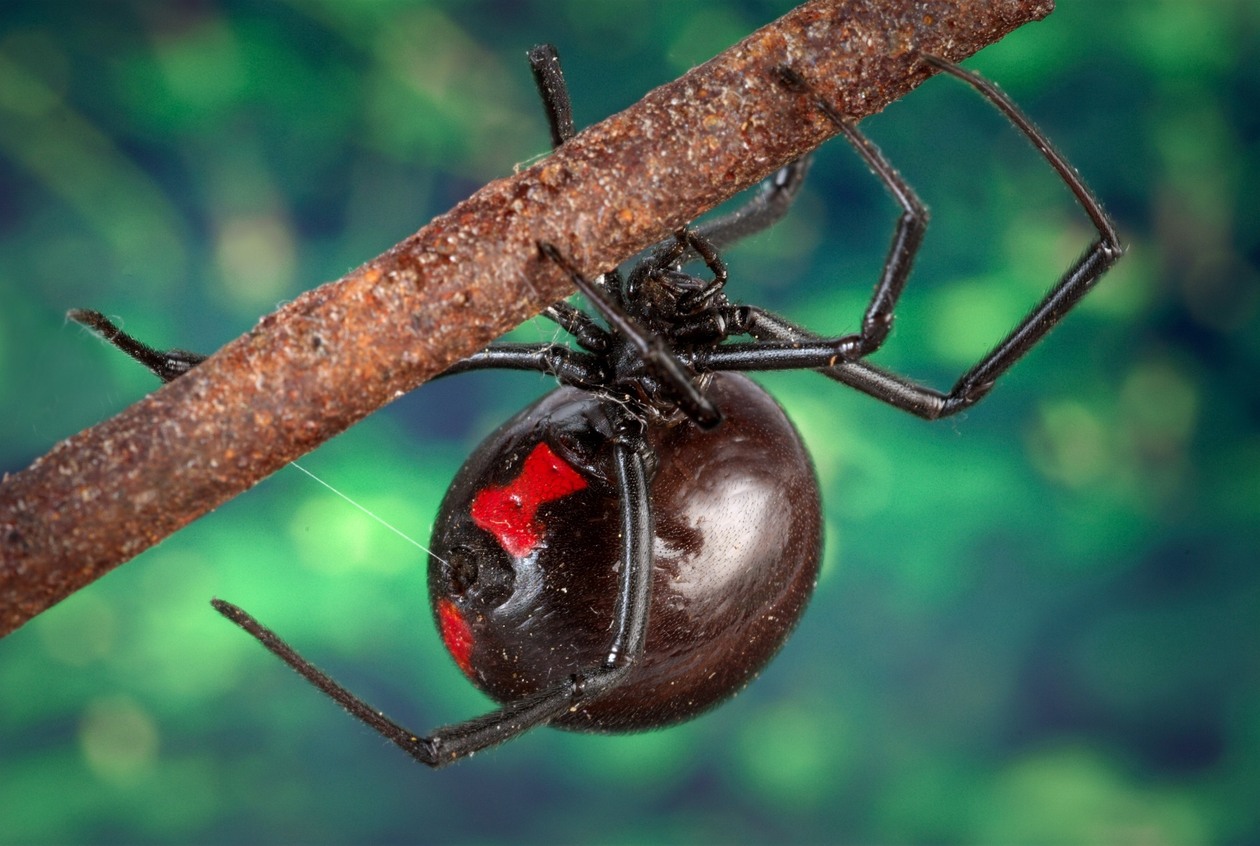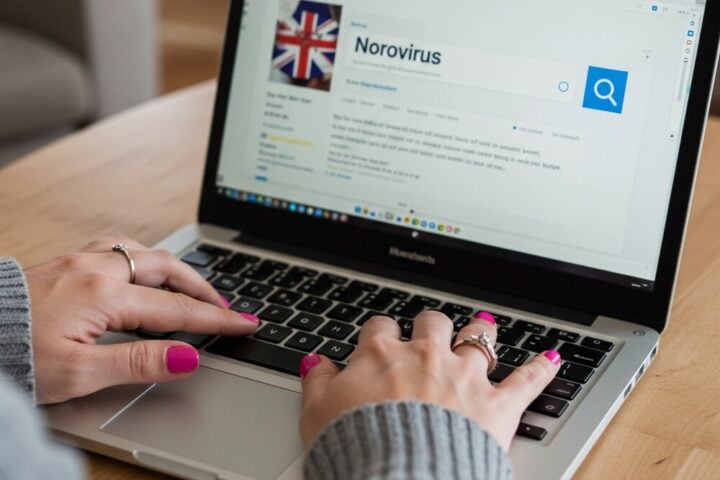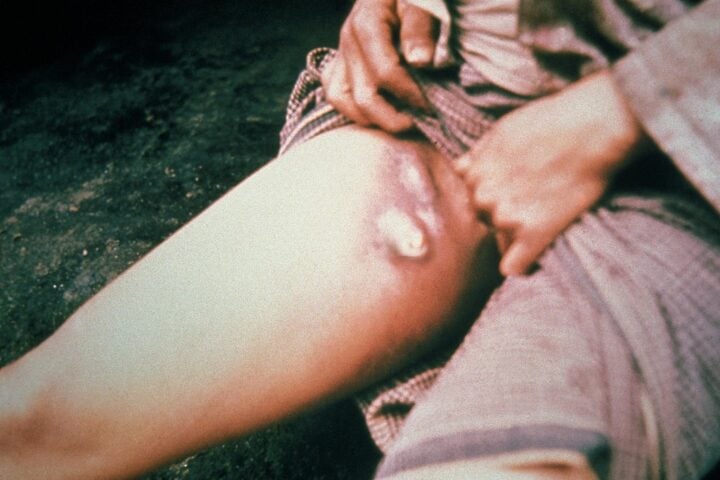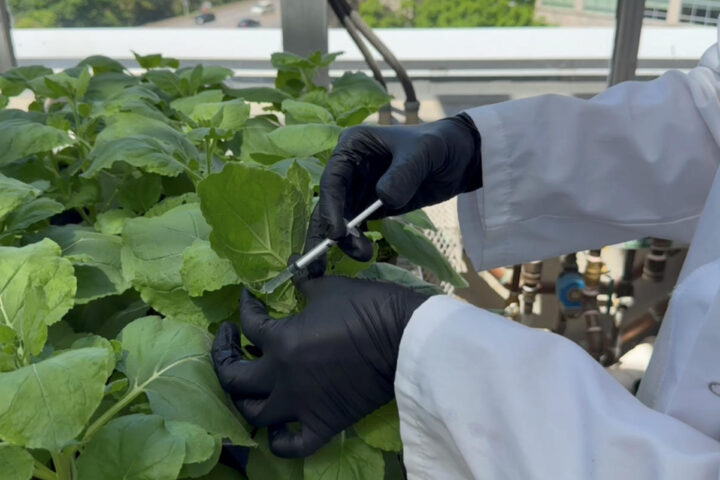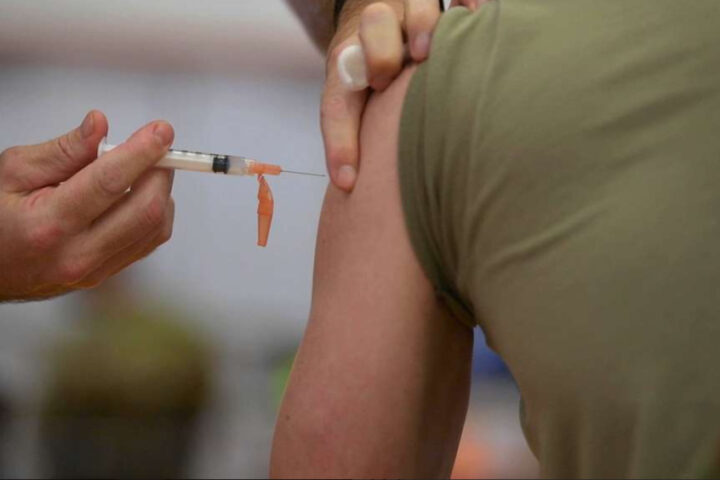The venom of the European black widow can cause respiratory and heart problems and even be fatal. However, antiserums from horses are themselves highly prone to side effects. Now, a German research team has found another antidote.
An international research group has developed compounds against the spider venom of the European black widow. The team led by Michael Hust from the Technical University of Braunschweig produced and tested various antibodies that neutralize a neurotoxin in the venom mixture.
So far, such antidotes are usually obtained from the blood of horses that have been administered spider venom beforehand. However, such horse serums can lead to dangerous complications in humans and vary greatly in quality. The antidote from horse serum can also lead to allergic reactions up to anaphylactic shock. Two fatal cases have been documented, writes the research group in the journal “Frontiers in Immunology.”
The European black widow (Latrodectus tredecimguttatus) mainly inhabits the Mediterranean region and Southeastern Europe, and its venom mixture can cause abdominal and muscle pain as well as heart and respiratory problems and in very rare cases even be fatal. Replacing horse serum with human antibodies is expected to lead to a better and safer drug for patients and avoid the use of horses for antidote production.
The deadly threat posed by the European black widow could soon be a distant memory thanks to a major scientific breakthrough. This breakthrough has the potential to radically transform the treatment of black widow bites, making interventions not only safer but also more accessible. It could also reduce dependence on animal sources for antivenom production, aligning medical practices with modern ethical principles of treatment.
Similar Posts
The team led by Hust tested in the laboratory the ability of various human antibodies to bind to the neurotoxin alpha-latrotoxin – a particularly toxic component of the venom of the European black widow. The group developed a total of 75 antibodies, 45 of which neutralized the neurotoxin. The antibody MRU44-4-A1 showed a particularly strong effect in cell cultures, both individually and in combination with other antibodies. Two of the other antibodies also neutralized alpha-latrotoxin in the venom of the Southern black widow (Latrodectus mactans), which occurs in parts of America.
The research team used an advanced method called “phage display” to identify these antibodies. This technique allowed them to screen billions of antibodies to find those that specifically bind to black widow toxins, minimizing the risks of side effects.
“We set out to replace horse sera with recombinant human antibodies to get a better product for the patients and to avoid the use of horses for serum production,” Hust explained. To do so, the scientists used an in vitro method called antibody phage display. “This approach uses extremely diverse gene collections of more than 10 billion different antibodies. From this large diversity of antibodies, phage display can fish out antibodies which can bind the desired target, in this case the toxin,” Prof. Hust added.
The antibodies, derived from human gene libraries, were selected for their ability to neutralize the venom. The most promising candidate, named MRU44-4-A1, showed exceptional ability to counteract the effects of the venom in laboratory tests, making it an ideal candidate for future clinical trials.
Before it can be used in humans, the MRU44-4-A1 antibody will need to undergo a series of tests, including trials on animal models to confirm its effectiveness. It will also be subjected to toxicity studies and pharmacokinetic studies to ensure its safety.
For the commercial development of a drug, it would be important that antibodies are effective against toxins from as many spider species as possible. “To develop a potential treatment for all latrotoxins, and not only the toxin of the European black widow, we would need further improved cross reactive antibodies,” Prof. Hust pointed out.
In addition, the research group gained an insight that is important for the stability of a future drug: the antibodies remain effective even when they have been freeze-dried in the meantime. Another advantage of the antibodies is that they enable a direct detection of latrodectism – the clinical picture after being bitten by a black widow – which was previously difficult.
The further development of the antidote is significant against the background that the distribution area of the European black widow is expanding from the Mediterranean region to other European regions due to climate change, write the study authors.
As research progresses, the implications of this discovery for public health and preventive medicine are enormous. Not only could it save lives, but it could also reduce healthcare costs associated with the treatment of spider bites, which are often complex and costly.
